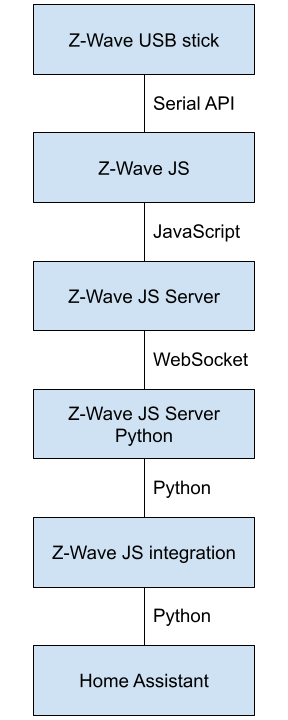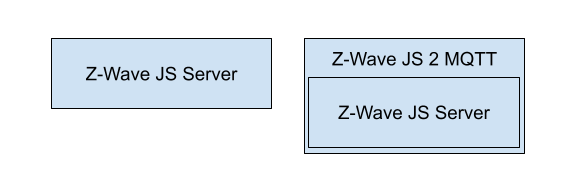* Use device ID as input for zwave_js WS device cmds * Additionally missed commands, update network_status command to include node status data * revert change to removed function * Revert register device change |
||
|---|---|---|
| .. | ||
| docs | ||
| translations | ||
| triggers | ||
| __init__.py | ||
| addon.py | ||
| api.py | ||
| binary_sensor.py | ||
| button.py | ||
| climate.py | ||
| config_flow.py | ||
| config_validation.py | ||
| const.py | ||
| cover.py | ||
| device_action.py | ||
| device_automation_helpers.py | ||
| device_condition.py | ||
| device_trigger.py | ||
| diagnostics.py | ||
| discovery.py | ||
| discovery_data_template.py | ||
| entity.py | ||
| fan.py | ||
| helpers.py | ||
| humidifier.py | ||
| light.py | ||
| lock.py | ||
| manifest.json | ||
| migrate.py | ||
| number.py | ||
| README.md | ||
| select.py | ||
| sensor.py | ||
| services.py | ||
| services.yaml | ||
| siren.py | ||
| strings.json | ||
| switch.py | ||
| trigger.py | ||
Z-Wave JS Architecture
This document describes the architecture of Z-Wave JS in Home Assistant and how the integration is connected all the way to the Z-Wave USB stick controller.
Architecture
Connection diagram
Z-Wave USB stick
Communicates with devices via the Z-Wave radio and stores device pairing.
Z-Wave JS
Represents the USB stick serial protocol as devices.
Z-Wave JS Server
Forward the state of Z-Wave JS over a WebSocket connection.
Z-Wave JS Server Python
Consumes the WebSocket connection and makes the Z-Wave JS state available in Python.
Z-Wave JS integration
Represents Z-Wave devices in Home Assistant and allows control.
Home Assistant
Best home automation platform in the world.
Running Z-Wave JS Server
Z-Wave JS Server can be run as a standalone Node app.
It can also run as part of Z-Wave JS 2 MQTT, which is also a standalone Node app.
Both apps are available as Home Assistant add-ons. There are also Docker containers etc.

